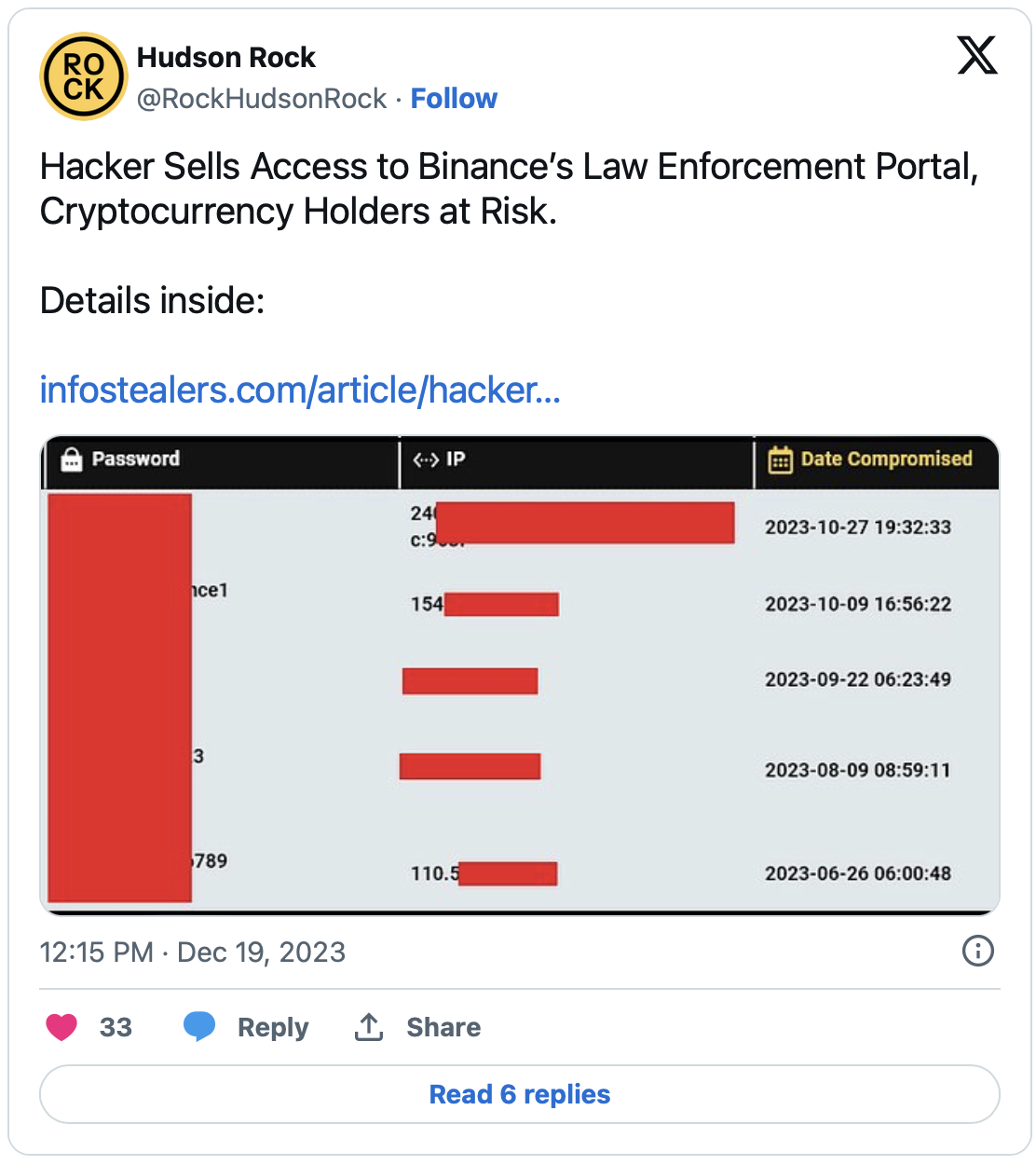At the beginning of the week, an announcement by a BreachForums user named Miembro about selling access to the data request portal of the cryptocurrency exchange Binance, which was built to accommodate law enforcement and government officials worldwide, made headlines. The portal contains many important details of Binance users.
Data Sold for 10 Thousand Dollars
If the hacker named Miembro is telling the truth about gaining access to Binance’s data request portal, users’ emails, phone numbers, wallet addresses, and exchange identities have been stolen. Those who want to access all this information are being asked for a relatively low fee of 10 thousand dollars.
It is currently unclear whether the sensitive user data in Binance’s data portal has found a buyer or, if it has, how much of the data has been sold.
How Was Access to Binance’s Data Portal Obtained?
Although there is no clear information on how access to Binance’s data portal was obtained, security researchers at Hudson Rock put forward a reasonable hypothesis. According to the claim, Binance allows access to the law enforcement database through Kodex Global. According to Hudson Rock, the hacker gained access to the data portal by infecting computers with malware at three different points in Taiwan, Uganda, and the Philippines:
The shared image shows three login profiles that have access to Binance’s login panel. These login details belong to Taiwan’s Criminal Investigation Bureau (CIB), the Uganda Police Force (UPF), and the Philippine National Police’s Anti-Cybercrime Group (ACG).

Cybersecurity researchers have reached out to Binance for clear information regarding the incident, but so far, there has been no public response from the cryptocurrency exchange.
Although the accessed data does not allow direct manipulation of Binance accounts, sensitive user information has been stolen. This means that users could lose their anonymity and become targets of harassment, phishing attempts, and more. The Hudson Rock team has advised all Binance users to enable Google Authenticator (2FA) and update their passwords for now.
A similar incident occurred in 2020 when customer data from the hardware wallet provider Ledger was stolen. Users of the hardware wallet later received threats from hackers demanding cryptocurrency transfers. Whether any of these threats were acted upon is unknown.









